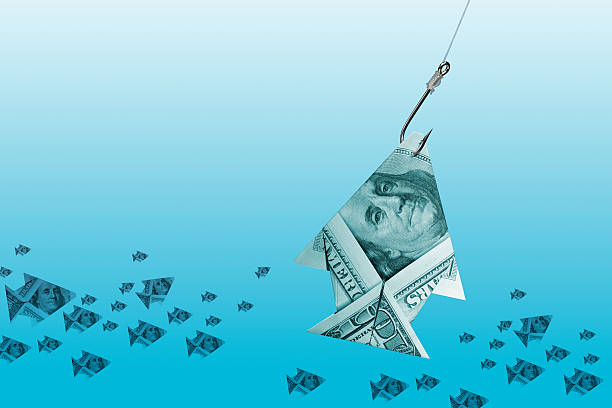The world’s oceans cover over 70% of the Earth’s surface, and they hold immense potential for economic growth and sustainability. This vast expanse of marine resources, often referred to as the “Blue Economy,” has gained increasing attention in recent years. But what exactly is the Blue Economy, and why is it so important?
The Blue Economy is a concept that goes beyond traditional approaches to ocean-based industries. It emphasises the sustainable utilisation of marine resources while promoting economic growth and social well-being. In essence, it seeks to strike a balance between harnessing the immense economic potential of our oceans and preserving their fragile ecosystems.
Within the Blue Economy, several sectors offer promising investment opportunities. These sectors range from marine tourism to renewable energy, aquaculture, biotechnology, and ocean exploration. Each of these areas presents unique challenges and rewards for investors who are willing to navigate the complexities of the maritime world.
Understanding the Blue Economy
Defining the Blue Economy in Depth
To truly grasp the potential of the Blue Economy, it’s crucial to delve deeper into its multifaceted definition. Beyond the conventional understanding of maritime industries, the Blue Economy encompasses a holistic approach to ocean-based economic activities. It incorporates not only traditional sectors like fisheries and shipping but also newer areas such as marine biotechnology, conservation, and even cultural tourism.
Historical Context and Evolution
The concept of the Blue Economy has evolved over time in response to growing environmental awareness and the recognition of the economic value of marine resources. Early interactions with the oceans were often driven by exploitation, but as we’ve gained a deeper understanding of the intricate ecosystems at play, a shift towards sustainable practices has emerged.
From early seafaring civilizations to the emergence of modern marine science, this historical context provides invaluable lessons for navigating the challenges and opportunities of the present-day Blue Economy.
Key Principles of Sustainable Marine Resource Management
Sustainability lies at the heart of the Blue Economy. It encompasses practices that ensure the long-term viability of marine ecosystems and the communities that rely on them. This involves careful resource management, pollution reduction, habitat conservation, and a commitment to understanding and mitigating the impacts of human activities on the marine environment.
Balancing economic gain with ecological responsibility is a central tenet of sustainable marine resource management, and it guides decision-making in every sector of the Blue Economy.
As we venture further into the Blue Economy, it’s essential to keep these foundational principles in mind. By doing so, we can unlock the full potential of our oceans while safeguarding them for generations to come.
The Pillars of the Blue Economy
The Blue Economy encompasses a diverse range of sectors, each offering unique opportunities for investment and sustainable development. Let’s explore the key pillars that form the foundation of this burgeoning economic paradigm:
a. Marine Tourism
Growth Trends and Potential
Marine tourism has witnessed a remarkable surge in popularity in recent years. From vibrant coral reefs to serene coastal landscapes, travellers are increasingly drawn to the natural beauty and cultural richness that coastal regions offer. This sector not only promises robust growth but also provides a platform for raising awareness about marine conservation.
Ecotourism and its Role in Conservation
One of the most exciting aspects of marine tourism is its potential to drive conservation efforts. Through carefully planned ecotourism initiatives, visitors can experience the wonders of the marine world while contributing directly to its preservation. This symbiotic relationship between tourism and conservation holds immense promise for the sustainable development of coastal communities.
Risk Management and Sustainability in Marine Investments
Investing in the Blue Economy comes with its own set of challenges and considerations. Understanding and effectively managing these risks is crucial for the long-term success of marine ventures. Equally important is the commitment to sustainability, ensuring that economic gains do not come at the expense of our precious marine ecosystems.
Environmental Considerations and Regulations
Navigating the complex regulatory landscape governing marine activities is paramount. Environmental regulations, including those related to pollution, habitat protection, and sustainable resource use, play a crucial role in shaping the operations of businesses in the Blue Economy. Staying compliant with these regulations not only mitigates legal risks but also contributes to the broader goals of environmental preservation.
Mitigating Risks Associated with Marine Ventures
From unpredictable weather patterns to technological challenges, marine investments face a range of unique risks. Robust risk assessment and management strategies are essential for minimising potential setbacks. This includes contingency planning, thorough feasibility studies, and leveraging cutting-edge technologies to enhance safety and efficiency.
The Importance of Ethical and Sustainable Practices
Sustainability isn’t just a buzzword—it’s a guiding principle for success in the Blue Economy. Adopting ethical and sustainable practices not only aligns with global conservation goals but also resonates with an increasingly conscientious consumer base. It fosters a positive reputation and long-term viability for businesses operating in this space.
By prioritising environmental responsibility and employing rigorous risk management practices, investors can confidently navigate the challenges of the Blue Economy while contributing to a more sustainable future.
Government Initiatives and Support
Governmental involvement plays a crucial role in fostering a thriving Blue Economy. Through policies, incentives, and collaborative initiatives, governments around the world are actively encouraging sustainable marine investments. Let’s explore some of the key ways in which governments are supporting this burgeoning economic frontier.
Policies Promoting the Blue Economy
Many nations have recognized the economic and environmental significance of the Blue Economy and have implemented policies to promote its growth. These policies often focus on sustainable resource management, conservation efforts, and the development of key industries like renewable energy and aquaculture. By providing a regulatory framework that encourages responsible practices, governments set the stage for a vibrant and sustainable Blue Economy.
Grants, Subsidies, and Incentives for Marine Investments
Governments frequently offer a range of financial incentives to spur investment in the Blue Economy. These can include grants for research and development, subsidies for sustainable practices, and tax incentives for businesses operating in key marine sectors. These financial supports not only reduce the initial barriers to entry for investors but also contribute to the broader goals of environmental stewardship.
Collaborative Opportunities with Governmental Agencies
Public-private partnerships are becoming increasingly common in the Blue Economy. Governments are eager to collaborate with private sector stakeholders to leverage their expertise, resources, and innovative solutions. These partnerships can take various forms, from joint research initiatives to co-funded infrastructure projects, ultimately driving progress in marine industries.
By actively engaging with government initiatives, investors can tap into a wealth of resources and opportunities that further enhance the viability and impact of their marine ventures.
Challenges and Future Prospects
As with any emerging economic frontier, the Blue Economy is not without its challenges. Addressing these obstacles head-on is essential for ensuring the long-term success and sustainability of marine investments.
Addressing Environmental Concerns and Conservation Efforts
Preserving the delicate balance of marine ecosystems is a paramount concern within the Blue Economy. Overfishing, habitat destruction, and pollution pose significant threats. Investors and businesses must actively engage in conservation efforts, adopting practices that prioritise environmental protection and restoration.
Technological Advancements and Their Impact

Continued innovation will be a driving force behind the evolution of the Blue Economy. Breakthroughs in areas such as marine robotics, renewable energy technologies, and biotechnology promise to revolutionise how we interact with and extract value from the oceans. Staying at the forefront of these technological advancements will be a key factor in the success of marine ventures.
Future Trends and Emerging Sectors
The Blue Economy is a dynamic and evolving field. New sectors and opportunities are likely to emerge as technology advances and our understanding of marine ecosystems deepens. Keeping a finger on the pulse of these trends will allow investors to position themselves strategically within this ever-changing landscape.
Conclusion
In the vast expanse of our oceans lies a world of untapped potential, waiting to be harnessed for the betterment of humanity and the planet. The Blue Economy, with its emphasis on sustainable practices and responsible resource utilisation, represents a beacon of hope for a more prosperous and harmonious future.
As we’ve explored the various facets of the Blue Economy, from marine tourism to renewable energy, aquaculture, biotechnology, and beyond, one thing becomes abundantly clear: the opportunities are boundless. Yet, with great potential comes great responsibility.
It is imperative that we approach the Blue Economy with a commitment to environmental stewardship and ethical business practices. By doing so, we can not only unlock economic prosperity but also safeguard the delicate balance of our marine ecosystems.
In this journey, collaboration will be our greatest ally. Governments, private sector stakeholders, researchers, and communities must work hand in hand to navigate the challenges and seize the opportunities that lie before us.
So, whether you’re an investor seeking new horizons, an entrepreneur with a vision for sustainable marine ventures, or an advocate for the conservation of our oceans, now is the time to act.
Together, we have the power to shape a future where the Blue Economy thrives, where our oceans flourish, and where generations to come can continue to benefit from the boundless bounty of the sea.
Thank you for joining us on this exploration of the Blue Economy and marine investments. Let us forge ahead, united in our commitment to a more sustainable and prosperous world.












